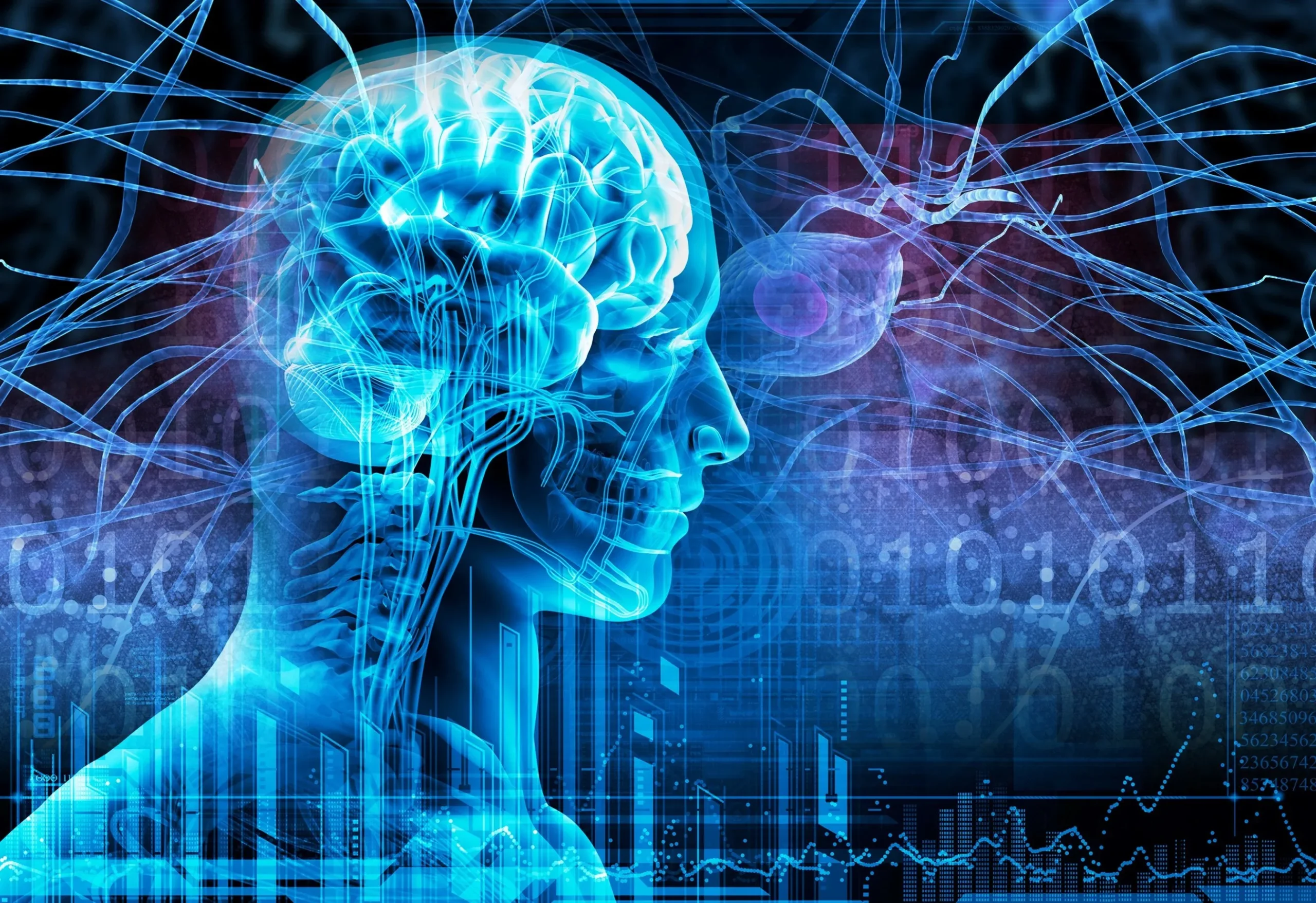Types of Accidents
Panic and Frightening Accidents
Panic is a complex emotional state characterized by feelings of intense fear or anxiety, often accompanied by physical symptoms such as a racing heart, sweating, trembling, and shortness of breath. In the context of dreams, panic can manifest in various ways, reflecting different aspects of one’s subconscious mind.
When it comes to frightening accidents in dreams, the symbolism can be multifaceted. On one hand, these types of dreams may represent unresolved emotional conflicts or unconscious fears that are causing distress in waking life. The accident itself might symbolize a perceived sense of loss of control, powerlessness, or vulnerability.
Accident dreams often occur when we’re facing significant changes, stressors, or anxiety-provoking situations. They can serve as a metaphor for the turmoil brewing within us, making it difficult to cope with the demands of reality.
The interpretation of panic and frightening accidents in dreams is highly personal and dependent on individual experiences and emotions. However, some possible connections include:
- Loss of control: Accidents often signify feelings of being overwhelmed or unable to manage one’s life effectively.
- Emotional turmoil: Frightening accidents may represent pent-up emotions that are unresolved or suppressed.
- Fear of failure: These dreams could indicate deep-seated fears of failing in important aspects of life, such as relationships, career, or personal goals.
- Unresolved trauma: Accident dreams can be a manifestation of past traumatic experiences or memories.
The interpretation of panic and frightening accidents in dreams relies heavily on the context and emotions evoked during the dream itself. To unlock their true meaning, it’s essential to:
- Reflect on personal fears and anxieties.
- Identify triggers for these feelings in waking life.
- Recognize any unresolved emotional conflicts or past traumas that may be contributing to the dream content.
- Cultivate self-awareness and practice relaxation techniques, such as meditation or deep breathing exercises, to manage stress and anxiety in the present moment.
A panic inducing accident in a dream often signifies that you’re experiencing fear or anxiety about a situation.
A panic-inducing accident in a dream can be a manifestation of underlying fears or anxieties that are unresolved, and thus causing subconscious distress. This type of dream often signifies a sense of disempowerment or feeling trapped by circumstances beyond one’s control.
When you experience an accident in your dreams, it may indicate that you’re struggling to cope with the demands or pressures of waking life. This can be related to various aspects such as work, personal relationships, health, or financial stability.
The dream may serve as a reflection of your inner fear of losing control over situations, failing at tasks, or facing potential consequences for past actions.
Additionally, accidents in dreams often represent an inner conflict between the desire to achieve a goal and the fear of failure. This internal turmoil can be caused by feelings of inadequacy, self-doubt, or the fear of being overwhelmed by responsibilities.
In many cases, dreams about accidents may symbolize unresolved issues from your past that continue to haunt you, leading to emotional distress in waking life. These unresolved conflicts might stem from past traumas, relationship problems, or unfinished business that needs attention.
The interpretation of accident dreams can also be linked to feelings of inadequacy or being overwhelmed by tasks and responsibilities. This may indicate a need for re-evaluation of priorities or seeking support from others when needed.
It’s worth noting that dreams are highly personal, so the meaning of an accident dream will vary greatly depending on the context of your life at the time of the dream, as well as other factors such as your personality, experiences, and emotional state.
In general, addressing the underlying fears or anxieties through self-reflection and seeking support when needed can help in resolving the unconscious distress and mitigating the occurrence of panic-inducing accidents in dreams.
It could also indicate feeling overwhelmed by the demands of daily life.
The concept of having a recurring nightmare about being in an accident can be a complex and multifaceted issue, with various possible underlying causes and meanings. One interpretation is that the dream may indicate feeling overwhelmed by the demands of daily life.
This feeling of being overwhelmed can stem from numerous sources, including work-related stress, financial pressures, family obligations, or social expectations. The subconscious mind may manifest this anxiety through a recurring nightmare about an accident, serving as a coping mechanism to process and release pent-up emotions.
Additionally, the dream could be a representation of the individual’s perceived loss of control in their waking life. In the dream state, the character is often powerless to prevent the accident, much like how they feel helpless against the demands and pressures that surround them.
The recurring nature of the nightmare may also suggest an ongoing sense of dread or anxiety. This could be a manifestation of unresolved issues, past traumas, or unaddressed emotions that continue to plague the individual in their waking life.
It is essential to explore the specific details of the dream and how they relate to the individual’s personal circumstances. Are there any recurring themes, symbols, or emotions present in the nightmare? What is the emotional tone of the dream – is it one of fear, guilt, shame, or regret?
By examining these aspects and reflecting on their relevance to waking life, individuals may begin to uncover underlying causes for the recurring nightmares. This introspection can ultimately lead to greater self-awareness, allowing them to address and manage stressors more effectively.
A possible step towards managing feelings of overwhelm is establishing a daily routine that promotes relaxation and stress relief. This could include practices such as meditation, yoga, or deep breathing exercises.
It may also be beneficial to re-evaluate priorities and set realistic goals, breaking down larger tasks into manageable components. By doing so, individuals can regain a sense of control over their lives and reduce feelings of being overwhelmed by the demands of daily life.
In some cases, seeking professional help from a therapist or counselor may be necessary to address deeper underlying issues contributing to the recurring nightmares. A trained mental health professional can provide guidance on coping mechanisms, stress management techniques, and strategies for addressing unresolved emotions.
Natural Disasters as Accidents
Natural disasters can be classified into several categories based on their characteristics and the impact they have on human populations and the environment. These include geological disasters, meteorological disasters, and hydrological disasters.
Geological disasters are caused by the movement of the Earth’s crust and can include earthquakes, volcanic eruptions, landslides, and tsunamis. Earthquakes occur when there is a sudden release of energy in the Earth’s crust, often as a result of tectonic plate movements.
Volcanic eruptions are caused by the movement of magma from beneath the Earth’s surface to the surface, often resulting in the emission of hot ash and gases. Landslides occur when rock or soil becomes unstable and collapses, often due to heavy rainfall or earthquakes.
Tsunamis are massive waves caused by earthquakes or volcanic eruptions that can cause widespread destruction and loss of life when they reach the coast.
Meteorological disasters are caused by weather-related phenomena and can include hurricanes, tornadoes, floods, and droughts. Hurricanes are powerful storms that form over warm ocean waters and can bring strong winds and heavy rainfall to coastal areas.
Tornadoes are rotating columns of air that touch the ground and cause destruction in their path. Floods occur when an area is inundated with water, often due to heavy rainfall or a storm surge from a hurricane.
Droughts are prolonged periods of abnormally low rainfall that can have a significant impact on agriculture and human settlements.
Hydrological disasters are caused by the movement of water and can include floods, landslides, and flash floods. Floods occur when an area is inundated with water, often due to heavy rainfall or a storm surge from a hurricane.
Landslides can also be caused by hydrological factors, such as heavy rainfall, which can cause rock or soil to become unstable and collapse.
Flash floods are rapid rises in water level that occur when heavy rainfall falls over a small area. This type of flood is often associated with sudden and intense rain showers that can catch people off guard.
The impact of natural disasters on human populations can be significant, leading to loss of life, injury, displacement, and economic disruption. It is essential for communities to be prepared for natural disasters by having emergency plans in place and taking steps to mitigate the effects of these events.
Dreams involving natural disasters, such as earthquakes, hurricanes, and floods, typically signify inner turmoil or emotional upheaval.
Dreams involving natural disasters can be particularly unsettling and disturbing, evoking strong emotions that can linger long after waking up. At its core, a dream about a natural disaster may serve as a manifestation of the subconscious mind’s attempt to process and cope with internal conflicts or emotional turmoil.
Earthquakes in dreams often symbolize feelings of instability or feeling out of control, reflecting a sense of inner chaos or emotional upheaval. This type of earthquake can be triggered by significant life changes or stressors that leave individuals feeling lost or uncertain about the future.
Hurricanes in dreams can signify a sense of being overwhelmed by circumstances, emotions, or responsibilities. The powerful winds and heavy rains associated with hurricanes may represent the turmoil and emotional intensity that comes with experiencing anxiety, fear, or feelings of helplessness.
Floods in dreams often symbolize an overwhelming sense of emotional distress or feeling submerged under a sea of problems. This can be triggered by feelings of being overwhelmed by responsibilities, relationships, or life events, leaving individuals feeling like they are drowning in their emotions.
When interpreting these types of dreams, it’s essential to consider the specific details and emotions experienced during the dream, as well as any personal experiences or challenges that may be influencing the subconscious mind. By examining these factors, individuals can gain a deeper understanding of their emotional state and work towards resolving inner turmoil or finding ways to manage stress and anxiety.
It’s also worth noting that dreams involving natural disasters can sometimes serve as a warning sign for potential issues in waking life. For example, a dream about an earthquake may indicate underlying fears or anxieties related to finances, relationships, or career stability. By paying attention to these symbolic warnings, individuals can take proactive steps to address and resolve any emerging problems before they become too overwhelming.
Ultimately, the key to unlocking the meaning behind dreams involving natural disasters lies in understanding the unique emotional landscape of each individual. By embracing self-awareness, introspection, and a willingness to confront internal conflicts, individuals can use these dreams as an opportunity for growth, healing, and transformation.
They can represent feelings of being powerless against external forces beyond your control.
The symbol of an accident in a dream can have various interpretations, but one common theme is the representation of feelings of powerlessness against external forces beyond your control.
Accidents often occur unexpectedly and without warning, leaving the individual feeling caught off guard and unable to react or prevent the event from happening.
This can be reflective of waking life experiences where you may feel overwhelmed by circumstances that are beyond your control, such as a sudden illness, job loss, or other unforeseen events.
The dream could also be a manifestation of repressed emotions or unresolved conflicts that are causing feelings of anxiety and helplessness in the waking world.
Furthermore, an accident in a dream may symbolize a sense of being trapped or limited in some way, whether it’s due to external circumstances or internal fears and doubts.
The accident can represent a turning point or a wake-up call, prompting you to re-evaluate your priorities, values, and life choices to regain a sense of control and direction.
Consider the context of the dream: were there any specific emotions or sensations associated with the accident? Was it a minor scrape or a severe trauma?
The more vivid the details, the better equipped you’ll be to unpack the symbolism and uncover the underlying message.
It’s also essential to reflect on your waking life and identify potential areas where you may feel powerless or trapped. This could be related to relationships, work, health, or other aspects of your life.
By exploring these connections, you can gain a deeper understanding of the accident dream and its relevance to your current circumstances.
Interpretation by Element

Falling in the Dream
Falling in the Dream Accident Dream Dictionary:
Falling is one of the most common dreams experienced by people, and it can have a wide range of meanings depending on the context of the dream.
When falling is associated with an accident in a dream, it can represent a sense of losing control or feeling overwhelmed in waking life.
The following are some possible interpretations of falling in the accident dream:
- Losing Control: Falling in a dream can symbolize a lack of control over one’s life, whether it be due to external circumstances or internal struggles.
- Fear and Anxiety: The act of falling can evoke feelings of fear and anxiety, indicating that the dreamer may be feeling anxious about their current situation or worried about the future.
- Transition or Change: Falling can also represent a transition from one phase to another in life, whether it be a change in career, relationship, or personal growth.
- Mental Health: In some cases, falling in an accident dream may be related to mental health concerns such as depression, anxiety disorders, or post-traumatic stress disorder (PTSD).
Consider the following questions when interpreting your fall in an accident dream:
- How did you feel during the fall?
- What were you doing before falling?
- Were there any objects or people involved in the accident?
Reflecting on these details can help you better understand your subconscious mind and uncover potential areas for personal growth and self-improvement.
Remember, dreams are highly personal and subjective, so trust your intuition when interpreting your own dreams. Take a step back, reflect on the symbolism, and explore the connections between your waking life and your dream state.
Falling from a great height often indicates loss of control over your life.
Falling from a great height is a common motif in dreams, and it can have various interpretations depending on the context of the dream and personal experiences of the individual. However, one interpretation that stands out is the loss of control over your life.
When you’re dreaming about falling from a great height, you may feel a sense of panic or helplessness as you try to regain control or slow down your descent. This can symbolize feelings of overwhelm and lack of control in your waking life.
The act of falling can represent the feeling of being swept up by circumstances beyond your control, such as changes at work or relationships issues. It can also signify a sense of disconnection from your emotions or intuition, leaving you feeling ungrounded or unstable.
In some cases, falling dreams may be related to fears about the future, especially if the dreamer is experiencing stress or anxiety about upcoming events. The fear of losing control can manifest as a fear of falling, which may indicate deeper concerns about one’s ability to navigate life’s challenges.
Some possible triggers for falling dreams include:
- Major Life Changes: Significant transitions, such as moving, switching jobs, or experiencing a major relationship change, can trigger feelings of uncertainty and loss of control.
- Stress and Anxiety: Ongoing stressors in your life, whether related to work, finances, or personal relationships, can lead to a sense of overwhelm and powerlessness.
- Mental Health Issues: Mental health conditions such as depression, anxiety disorder, or post-traumatic stress disorder (PTSD) can increase the frequency of falling dreams.
- Feeling Trapped or Stuck: Feeling trapped in a situation or stuck in a rut can lead to feelings of desperation and loss of control.
To better understand your falling dream, consider the following questions:
- What was happening before I started falling in my dream?
- Where did I feel like I was going in my dream?
- Did I try to grab onto anything or attempt to regain control during the fall?
- How do I feel when I wake up after having this dream?
Reflecting on these questions and considering the possible triggers mentioned above can help you uncover underlying causes and emotions associated with your falling dream.
In terms of overcoming feelings of loss of control, it may be helpful to:
- Identify Areas for Change: Recognize situations or patterns that contribute to feelings of overwhelm and start working on making positive changes.
- Prioritize Self-Care: Engage in activities that promote relaxation and stress reduction, such as exercise, meditation, or creative pursuits.
- Become More Mindful: Practice mindfulness techniques to increase awareness of your thoughts, emotions, and bodily sensations, helping you better manage feelings of anxiety or overwhelm.
- Seek Support: Reach out to trusted friends, family members, or mental health professionals for guidance and support in navigating challenging situations.
It may also symbolize fear of failure or falling short of expectations.
Dreams about accidents can be unsettling and often leave the dreamer feeling anxious or uneasy upon waking. One possible interpretation of such dreams is that they may symbolize a fear of failure or falling short of expectations. This fear can manifest in various aspects of life, including personal relationships, career goals, or even physical well-being.
The subconscious mind may be processing anxieties and worries about not meeting one’s own standards or the expectations set by others. For instance, if an individual is experiencing stress at work or struggling with a particular task, they may have dreams about accidents as a way of expressing their underlying fear of failure.
Another possible interpretation is that the accident dream reflects feelings of powerlessness or being out of control in one’s life. The subconscious may be hinting at feelings of vulnerability and a need for greater control or agency over one’s circumstances.
The specific details of the accident in the dream can also provide insight into its meaning. For example:
- A car accident may symbolize feelings of being trapped or stuck in a particular situation, such as a troubled relationship or an unfulfilling job.
- A fall from a great height could represent a fear of losing control or feeling overwhelmed by the demands of daily life.
- An accident involving water may signify emotional turmoil or feelings of being swept away by one’s emotions.
In some cases, an accident dream can also be seen as a manifestation of unresolved guilt or shame related to past events. The subconscious may be processing these emotions and seeking closure or forgiveness.
It is essential to consider the personal context and emotional state of the individual having the dream when interpreting its meaning. A professional therapist or counselor can help provide a deeper understanding of the underlying causes and symbolism in the dream.
Accidents Involving Transportation
The dream dictionary suggests that accidents involving transportation can have various symbolic meanings depending on the context and elements present in the dream.
The primary meaning associated with such dreams is a fear or anxiety about being out of control or losing one’s sense of direction in waking life.
It may also represent emotional turmoil or inner conflict, as transportation often symbolizes movement from one stage to another, and an accident could signify that you are struggling to navigate through challenging situations.
In many cultures, transportation is associated with spiritual journeys or transition phases in life, so accidents involving transportation may indicate a need for self-reflection and reassessment of your path.
Furthermore, the type of vehicle involved in the accident can be significant – for example, if it’s an air travel-related dream, you may be anxious about making decisions that affect your career or feeling confined in your current situation, while a road travel-related dream could represent difficulties with decision-making or changes in life direction.
Additionally, the extent of the damage caused by the accident can also have different meanings: a minor collision might symbolize a minor setback, but a serious crash could indicate significant inner turmoil or catastrophic consequences from poor decision-making.
Considering the emotional tone and your personal associations with transportation in waking life is crucial to accurately interpreting the meaning behind such dreams.
Dreams involving car accidents can signify a change in direction or path in waking life.
Dreams involving car accidents can be quite distressing, but they often serve as a wake-up call to re-evaluate and reassess our current course of action in waking life. When we dream about being involved in a car accident, it can symbolize a feeling of losing control or being overwhelmed by the demands of daily life.
The car itself is often seen as a representation of one’s ego, identity, or sense of self. An accident in this context may indicate that our current approach to life is no longer serving us or that we’ve strayed off course. It could also suggest that we’re experiencing difficulties in navigating the challenges and obstacles that lie ahead.
Car accidents can occur due to various reasons such as recklessness, fatigue, distraction, or mechanical failure. Each of these elements can have a different interpretation in dreams:
Reckless driving may signify impulsive decisions made without considering the consequences. This could be related to taking unnecessary risks in your waking life, which might lead to problems.
Fatigue might suggest feelings of exhaustion or burnout. If you’re not getting enough rest or feeling overwhelmed by responsibilities, it’s possible that your subconscious is trying to tell you that you need to take a break and recharge.
Distraction could indicate mental preoccupation or being sidetracked from important goals. It may be time to refocus and prioritize what’s truly essential in your life.
Mechanical failure might symbolize an underlying issue with one’s emotional or psychological machinery. This could represent unresolved conflicts, anxiety, or other underlying problems that need attention.
The way the accident is depicted in the dream can also hold significance: the severity of injuries, damage to the car, and the presence of others can all contribute to a richer understanding of what your subconscious is trying to convey.
Considering the context of the dream and how it relates to personal issues or challenges you’re currently facing can help clarify its meaning. By paying attention to these details and exploring possible connections to waking life, you may uncover insights that guide you towards making necessary adjustments in your path forward.
They often relate to how you approach challenges and decisions, indicating a need for adjustments in your behavior.
Accident dreams can be quite disturbing and unsettling, leaving the dreamer with a sense of unease and anxiety. However, when interpreted properly, these dreams can provide valuable insights into our waking lives. The underlying themes often revolve around how we approach challenges and make decisions.
The first step in understanding an accident dream is to analyze its context. Are you driving or being driven? If so, this could symbolize a sense of control over your life’s journey. Perhaps you feel overwhelmed by circumstances beyond your control, leading to feelings of vulnerability and powerlessness.
Another crucial aspect to consider is the nature of the accident itself. Was it a car crash, a fall, or some other type of mishap? The specifics can offer clues about what areas of your life need attention. For instance, a car crash might signify a collision between different aspects of your personality or conflicting goals.
The setting and characters in the dream can also hold significance. Are you alone when the accident occurs, or are there others present? This could indicate how you perceive yourself and your relationships with others. Do you feel isolated or supported?
Furthermore, examine the emotions that arose during the accident. Were you experiencing fear, panic, or regret? These emotions can be a reflection of how you handle stress and anxiety in real life.
The key to unlocking the meaning behind an accident dream lies in identifying the areas where your actions or decisions are causing problems. This might involve taking responsibility for past mistakes, reevaluating your priorities, or seeking guidance from trusted sources.
Ultimately, accident dreams serve as a wake-up call, urging us to reassess our approach to challenges and make necessary adjustments. By confronting our fears and insecurities, we can develop greater resilience and learn to navigate life’s obstacles with confidence.
Accident Dream Frequency
Recurring Accidents
Recurring Accidents in Dreams: Unlock the Hidden Meanings
A recurring accident dream can be a disturbing and unsettling experience, leaving you feeling anxious and on edge. However, these dreams often carry hidden messages that require careful interpretation to unlock their true meaning.
Here are some common themes associated with recurring accidents in dreams:
Fear of Loss of Control
- Self-Doubt and Insecurity
- Feeling Trapped or Stuck
- Fear of Consequences or Outcomes
- Emotional Turbulence or Chaos
- Lack of Confidence or Self-Trust
- Past Trauma or Emotional Scars
To decipher the meaning behind your recurring accident dream, consider the following questions:
- What were you doing when the accident occurred?
- Who was involved in the accident (if anyone)?
- Were there any emotions associated with the accident (e.g. fear, anger, sadness)?
- Did you feel a sense of helplessness or powerlessness?
- Were there any recurring elements in your dream (e.g. location, objects, people)?
Answering these questions can provide valuable insight into the underlying causes and symbolism behind your recurring accident dreams.
Some possible interpretations of recurring accidents include:
- A need to address a specific issue or problem in waking life, such as self-doubt or lack of confidence
- An indication that you are feeling overwhelmed or trapped by circumstances
- A call to reassess your priorities and focus on the things that truly matter
- A manifestation of underlying fears or anxieties related to a specific situation or event
Ultimately, the meaning behind recurring accidents in dreams is unique to each individual. By paying attention to recurring themes and symbols, you can gain a deeper understanding of your own subconscious mind and unlock new insights into your waking life.
Recurring accident dreams suggest that you’re trapped by repetitive thought patterns or behaviors.
Recurring accident dreams can be unsettling and disturbing, leaving you feeling anxious and on edge even after waking up. These types of dreams often indicate that the subconscious mind is trying to convey a specific message or point out unresolved issues that need attention.
The recurring theme of accidents in these dreams may suggest that you’re trapped by repetitive thought patterns or behaviors that are no longer serving your best interests.
These thought patterns or behaviors can be related to past traumas, unaddressed emotions, or habitual responses to situations. The subconscious mind may be trying to break free from the constraints of these patterns and push you towards change.
In some cases, recurring accident dreams can also be a manifestation of deep-seated fears or anxieties that have been buried beneath the surface.
It’s essential to explore your feelings and emotions associated with the dream. What are the sensations you experience during the accident? Are you feeling frightened, anxious, or powerless?
The location of the accident in the dream can also be significant. For instance, if the accident occurs at home, it may indicate unresolved family issues or emotional baggage.
Consider keeping a dream journal to record your recurring accident dreams and reflect on them over time. This will help you identify patterns and possible connections to specific events or emotions in your waking life.
Talking through these dreams with a trusted friend, therapist, or counselor can also be beneficial. They may offer fresh perspectives, helping you uncover underlying causes and work towards positive changes.
It could be an indication of needing to break free from these cycles and adopt new approaches.
The recurring cycle of waking up during a dream, specifically an accident dream, can be a thought-provoking phenomenon that warrants further exploration. It could be an indication of needing to break free from these cycles and adopt new approaches, such as exploring the underlying causes of the dreams or learning techniques to control or manage them.
Accident dreams often symbolize feelings of being overwhelmed, out of control, or stuck in a particular situation. They may also represent unresolved issues, unfinished business, or unexpressed emotions that need attention and resolution. The repetition of such dreams could be an unconscious message from the mind, signaling the need to re-evaluate life choices, relationships, or personal goals.
Breaking free from these cycles requires self-reflection, introspection, and a willingness to confront underlying issues. It may involve seeking guidance from trusted individuals, engaging in therapy, or adopting new coping mechanisms to manage stress and emotions. Practicing mindfulness, meditation, or other relaxation techniques can also help mitigate the impact of recurring dreams.
By acknowledging and addressing these cycles, you may find that your sleep patterns change, and you start waking up feeling more refreshed and rejuvenated. You might even notice improvements in your relationships, work-life balance, or overall sense of well-being. Adopting new approaches to life can be transformative, allowing you to break free from limitations and achieve a deeper understanding of yourself and the world around you.
Infrequent Accidents
Infrequent Accidents Accident Dream Dictionary is a comprehensive resource that helps individuals decipher the meaning behind accidents occurring in their dreams. The concept of infrequent accidents refers to unexpected events or mishaps that happen outside the realm of one’s control, often causing physical harm or emotional distress.
The dream dictionary approach is based on the idea that dreams can be symbolic representations of our subconscious thoughts, emotions, and experiences. By analyzing the context and symbolism present in an accident dream, individuals can gain insights into their waking lives and address underlying issues.
Infrequent accidents can manifest in various ways in dreams, such as car crashes, slips, falls, or other types of mishaps. The frequency and intensity of these accidents can also vary, with some people experiencing recurring nightmares about accidents while others may only have occasional dreams about such events.
The interpretation of infrequent accidents accident dream dictionary involves considering several factors, including the emotions experienced during the dream, personal associations with accidents or trauma, and any symbolic elements present in the dream scene. For example:
- Recurring accidents may indicate unresolved emotional baggage or a need to confront past traumas.
- A sense of fear or panic during an accident dream can suggest anxiety or feelings of overwhelm in waking life.
- A dream about being involved in a minor fender bender may symbolize a small, irritating issue in one’s waking life.
- Accident dreams involving a loved one can represent concerns or fears related to their well-being.
To interpret infrequent accidents accident dream dictionary accurately, individuals should keep a dream journal to track recurring themes and emotions. Reflecting on personal experiences and connections with accidents or trauma can also provide valuable insights into the underlying causes of the dreams.
Ultimately, the infrequent accidents accident dream dictionary offers a unique perspective on the symbolic language of dreams. By exploring the meanings behind these events, individuals can gain a deeper understanding of themselves and develop strategies to address areas in their waking lives that may be contributing to recurring accident dreams.
Infrequent accident dreams may signify a sense of peace and balance in your life.
When you have infrequent accident dreams, it can be a sign that you are experiencing a high level of peace and balance in your waking life.
The frequency and intensity of nightmares or disturbing dreams can often be an indicator of unresolved issues or stressors in one’s life.
On the other hand, infrequent accident dreams suggest that you have been able to resolve past conflicts or find healthy ways to manage stress, which is reflected in your subconscious mind as a sense of peace and calm.
This can be attributed to several factors such as improved relationships with others, increased self-awareness, or the development of effective coping mechanisms.
In many cases, accident dreams are associated with unresolved emotional conflicts, but infrequent dreamers may have already processed their emotions and achieved a state of inner balance.
Moreover, having peaceful dreams can also be linked to factors like regular exercise, good sleep hygiene, or engaging in relaxing activities such as meditation or yoga.
The absence of disturbing dreams does not necessarily mean that you will never experience emotional challenges or conflicts in the future. However, it is a sign that you are well-equipped to handle any adversity that may come your way with confidence and composure.
Therefore, if you find yourself having fewer accident dreams, take it as an opportunity to appreciate the positive aspects of your life and continue nurturing those habits and practices that bring you peace and balance.
Pay attention to how you feel in your waking hours, as this can give you insight into why you might be experiencing peaceful dream states more often than not.
Ultimately, the recurring theme here is that infrequent accident dreams may signify a state of inner calmness and stability in one’s life, allowing for better coping mechanisms to address future challenges with greater ease.
However, they can also indicate complacency and the need for fresh challenges.
When dreams feature a recurring theme or scenario where everything unfolds smoothly without any obstacles or complications, it may initially suggest contentment and satisfaction with one’s current situation. This can indicate that the subconscious has recognized progress and achievement, fostering feelings of peace and stability.
However, they can also indicate complacency and the need for fresh challenges. On the surface, such dreams may seem to reflect a desire for continued ease and comfort. But from a deeper perspective, it’s possible that the dreamer is being cautioned against becoming too comfortable with their current circumstances.
Complacency can be detrimental to personal growth and motivation. It can lead to stagnation, causing individuals to become disconnected from their passions and goals. The subconscious mind may be nudging the dreamer to confront this complacency by introducing elements of risk or uncertainty into their dreams, urging them to re-engage with their aspirations.
Moreover, recurring smooth-sailing dreams could signal a sense of being stuck in a rut. They might reflect the dreamer’s resistance to change or their fear of taking risks necessary for growth and self-improvement. In this case, the dream is subtly encouraging the individual to break free from their comfort zone and pursue fresh challenges that will help them evolve as a person.
It’s also possible that such dreams are indicative of a general sense of boredom or dissatisfaction with one’s current life path. The subconscious may be nudging the dreamer to explore new interests, hobbies, or career paths in order to reignite their passion and sense of purpose.
In any case, recurring smooth-sailing dreams can serve as an opportunity for self-reflection and personal growth. By examining these dreams more closely and exploring their underlying themes and emotions, individuals can gain a deeper understanding of themselves and what they truly desire from life.
Ultimately, such dreams may be urging the dreamer to strike a balance between comfort and challenge. By embracing both aspects of their personality – the desire for ease and the need for growth – individuals can cultivate a more dynamic and fulfilling life that allows them to thrive in all areas.
- Bumper Sticker Dream Meaning: What Does A Bumper Sticker Symbolize In Your Dream? - September 15, 2024
- Balloon Dream Meaning: What Does A Balloon Mean In Your Dream? - September 14, 2024
- Ball Dream Meaning: What Does A Ball Mean In Your Dream? - September 13, 2024







